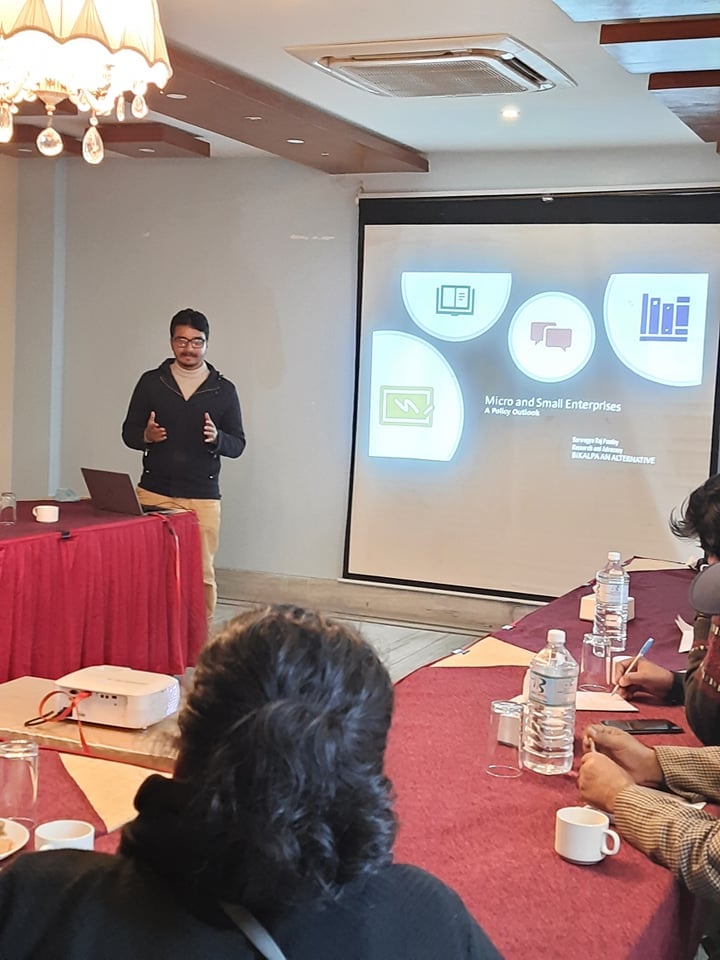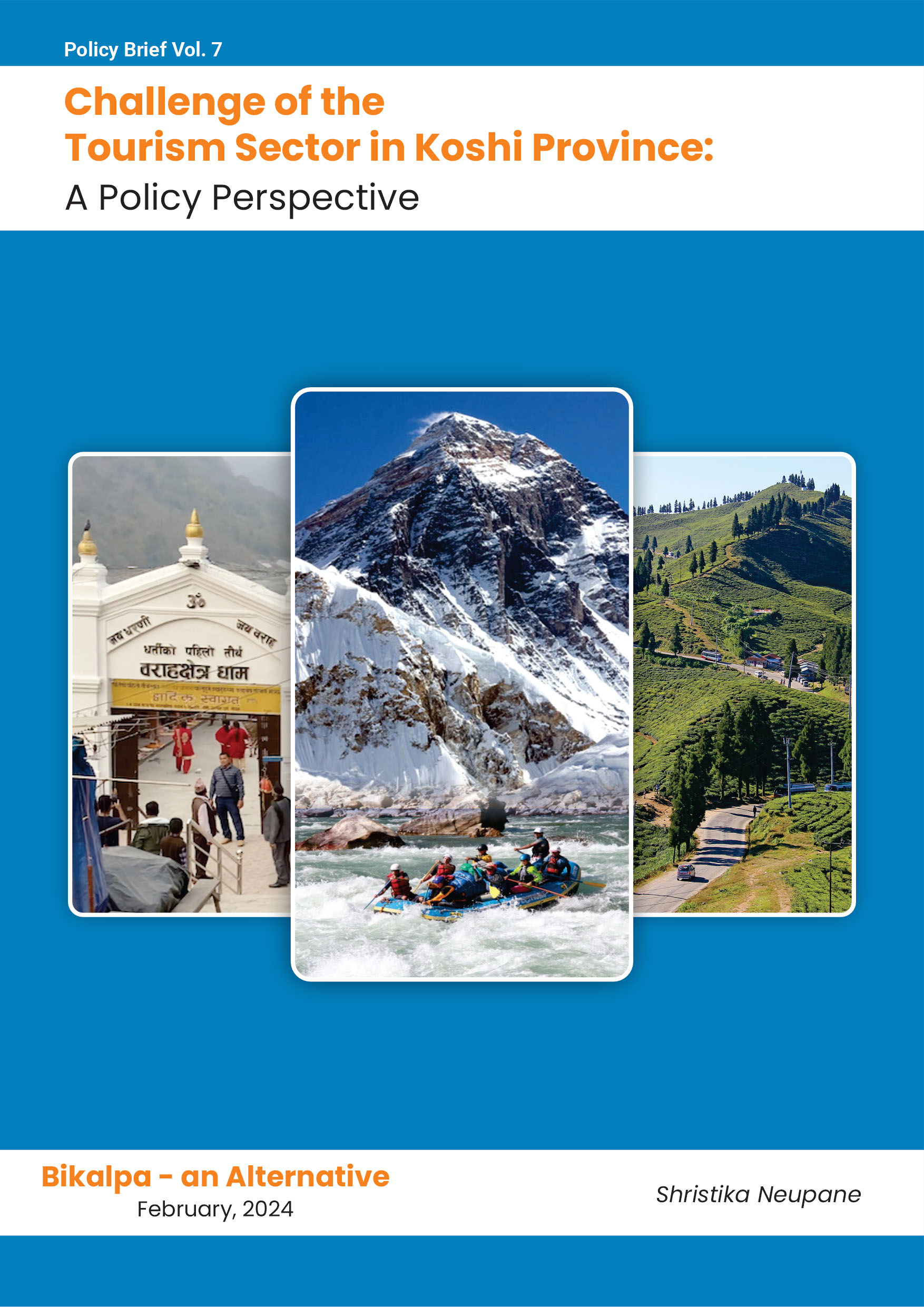Stakeholders Meeting is a platform that aims to bring corresponding stakeholders together including policy makers, intellectuals, entrepreneurs and civil society members to gather information on certain policy issues. Bikalpa an Alternative organizes such stakeholders meetings on a regular basis to gather further insights on its ongoing research areas. Consequently, after conducting a study on “Micro and Small Enterprises”, 11 stakeholders related to the MSE sectors were identified and invited for a stakeholder’s meeting from sectors including industries, Micro Enterprise Development for Poverty Alleviation, Federation of Nepali Cottage and Small Industries, Federation of Nepal Chamber of Commerce and Industries, Birat Business Association and Micro Financing institutions. The event was held at “The Big Hotel” on 22nd of January, 2021.
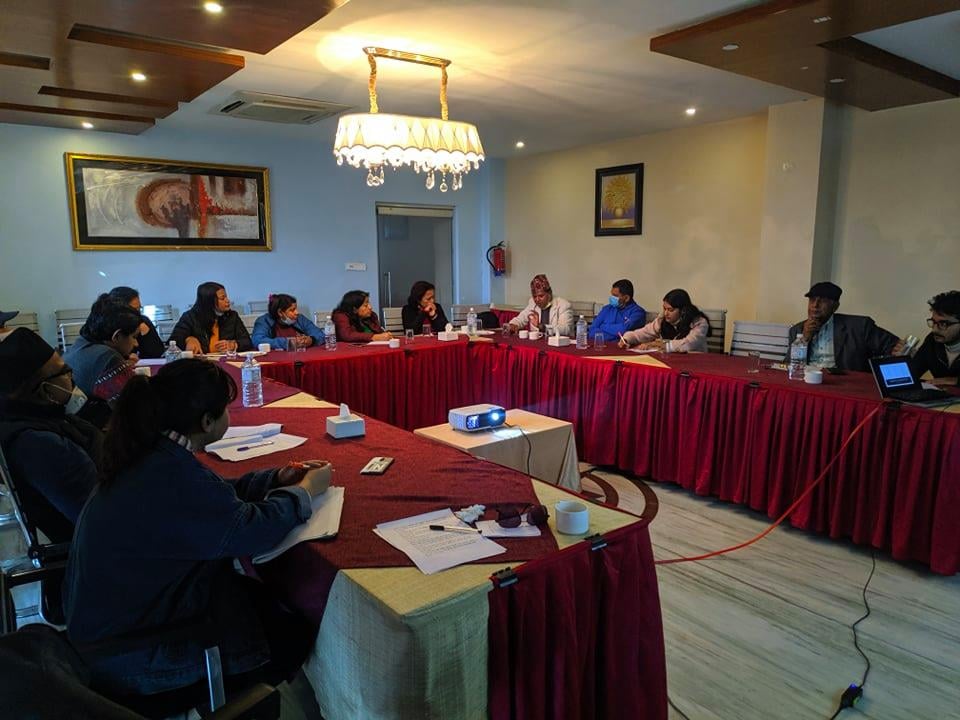
The program was facilitated by Basanta Adhikari, director of Bikalpa – An Alternative followed by a presentation on the findings of the research paper titled Micro and Small Enterprises-A Policy Outlook by Sarwagya Raj Panday, Research and Advocacy Officer at Bikalpa. The research paper highlighted the hurdles, legal frameworks, opportunities and recommendation on the MSE sector .Following the presentation, the floor was opened for discussion. Following is an excerpt of the opinions expressed by the stakeholders.
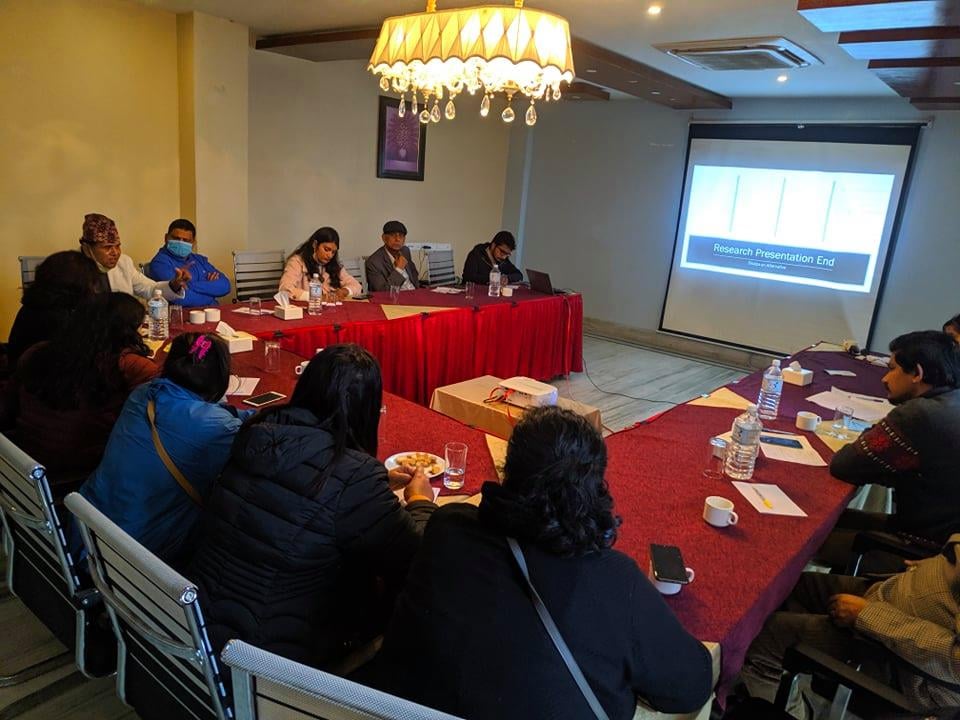
Sujan Thapa (Secretary, Birat Business Association)
- The registration process for small entrepreneurs by the Nepal Government is not streamlined and the bureaucrats are still indulging in time consuming practices which are not youth friendly as it frustrate young entrepreneurs. Due to the lengthy process of registration, young entrepreneurs are dis- incentivized to adopt innovative business models.
- The closure of the border during the lockdown period helped small businesses to take away the market share from imported goods which helped in promotion of small industries and businesses in the country. Government should think about introducing these kinds of measures to protect and promote the country’s own products which could also help in decreasing our trade deficit.
- Agriculture loan subsidies have been introduced but farmers from rural areas didn’t receive subsidies yet due to lack of information. Therefore, there is a need to disseminate information to the small enterprises as well.
- Introduction of subsidies for the entrepreneurs and farmers is praiseworthy but the implementation of this policy is weak as the bank does not provide easy grants to entrepreneurs and farmers.
Mani Kumar Aryal (CEO, Nerude MicroFinance Limited)
- The government is biased. The micro-finance bank reached among many sectors at the grass-root level across the country but the government still has lack of trust towards the micro-finance institutions. They give priority only to commercial banks.
- One-Window policy has been discussed many times by the government but there is no-coordination with any department to implement the policy. Independent forums like these ones are required to inform the Government.
- Government needs to facilitate in creation of online listing of businesses which will helps small business in promotion of their business as well as to identify the works of the entrepreneurs through digital media.
- Ease of doing business needs to be enabled by proper utilization of the resources.
- Quality control is a big issue behind the slump in our exports. No compromise should be made with regards to matter related to quality of our products
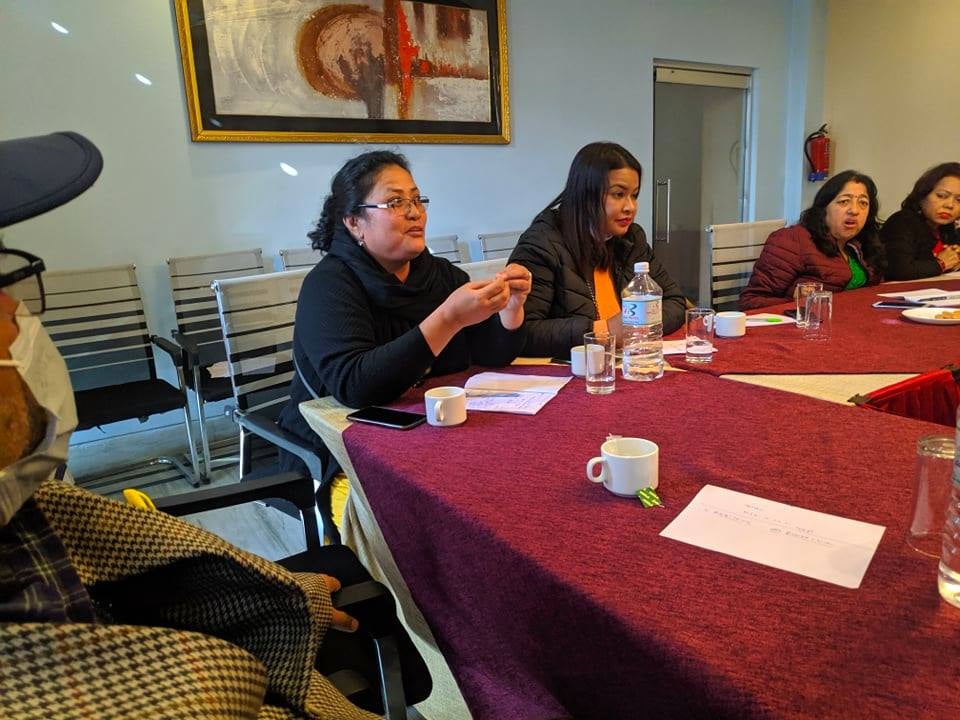
Sunita Chharohang (President of Women Entrepreneurs Wing, FNCSI)
- The main problem for small entrepreneurs is the information gap. Furthermore, the loan quota given by the bank for women entrepreneurs are influenced by big industrialists. Small entrepreneurs are deprived of the quota due to this information gap and favoritism.
- The Government’s effort to allow renewal of old business that hadn’t been running for a long time hasn’t been implemented due to various bureaucratic hassles. Most of the reforms are only limited to policy handbooks and never implemented due to poor homework done during policy framing. The rules are not streamlined.
- Women Entrepreneurs receive various subsidies in the form of easy bank loans but very few avail it. Without addressing the core issues of lack of skills and basic educations, the government shouldn’t expect women entrepreneurs to avail these benefits. Instead, in the name of women, businessmen will just use these subsidies and women will just be empowered in paper.
Saru K.C (Member, FNCCI)
- The main problem for small entrepreneurs is lack of KSA (Knowledge, Skills and Attitude). Small entrepreneurs lack basic knowledge in every sectors whether in matter of policies or information flow which leads them in a condition to think whether they are businessperson or an entrepreneurs. Likewise, small entrepreneurs lack skilled manpower. The skills required by our sectors are not interlinked with the skills provided by the CTEVT.
- Small entrepreneurs lack the attitude for investigation on why and what our sector lacks. Most are concerned with securing loans and subsidies from the government. A more robust entrepreneurial approach is needed to sustain the MSE sector.
- The solution of this lax attitude could be the 3Ms i.e. Mechanism, Manpower and Money. Small entrepreneurs should develop mechanisms to monitor. Likewise, they should develop manpower by developing and investing in the skills of their workers and lastly, they should establish links with finance institutes while starting a business.
Ramesh Adhikari (Economist)
- The main problem needs to be identified; whether the problem lies with the enterprises or with the government. Without identifying this, the problem of small entrepreneurs can never be solved.
- The policy made by the government is excellent but when its implementation hits a roadblock at the bureaucratic level.
- The main problem is bureaucracy and unless the mentality of the bureaucrats is reformed, difficulties in implementing the policies will continue.
Narendra Homagain (District President, FNCSI)
- The banking system and paperwork is cumbersome. Micro-financing institutions have not been given the freehand and priority like commercial banks. Commercial banks don’t prefer to invest in small businesses.
- The government’s plan of establishing an “Industrial Park” has been limited to policy handbooks. As a result, entrepreneurs are regularly harassed by authorities to relocate from residential areas.
- There are many issues related to entry and exit from the market. There is no practical policy to close an unhealthy business. The review period for registration after missing a deadline is huge, due to which entrepreneurs and businessmen are forced to incur large fines.
Saroj Lamsal (Director. Quikr Food)
- Multiple registering authorities and processes are a big problem for small entrepreneurs.
- Semi-skilled and unskilled workers have a high attrition rate since they don’t last in any sector long enough to become skilled. Even if a delivery-persongets a decent salary, they are easily enticed by work opportunities abroad.
- There are provisions for seed money and grants but due to procedural hassles related to tax clearances, many businesses can’t survive even until their first fiscal year.
Sabita Koirala (Provincial Coordinator, MEDPA)
- Small entrepreneurs face problems due to improper homework by policy makers. The policies are good but they aren’t properly streamlined. In Bhutan, policies related to any enterprise are made only after collecting feedback from the local stakeholders e. no registration and procedural hassle for small entrepreneurs to start a business, and the policies are made only after their business reaches a certain level.
- It is easy for the private sector to demand more protection from global competition but as a signatory of the World Trade Organization, this approach is flawed as blocking imports to promote local goods also violates consumers’ right to cheaper and quality products. Instead, the government needs to focus on incentives and reforms.
Shankhar Karki (Official, Provincial Directorate for Cottage and Small Industries)
- Exim code and Vehicle and Consignment Tracking System are not friendly for smaller businesses. Most policies only favour large industries and have thawed the growth potential of the MSE sector.

